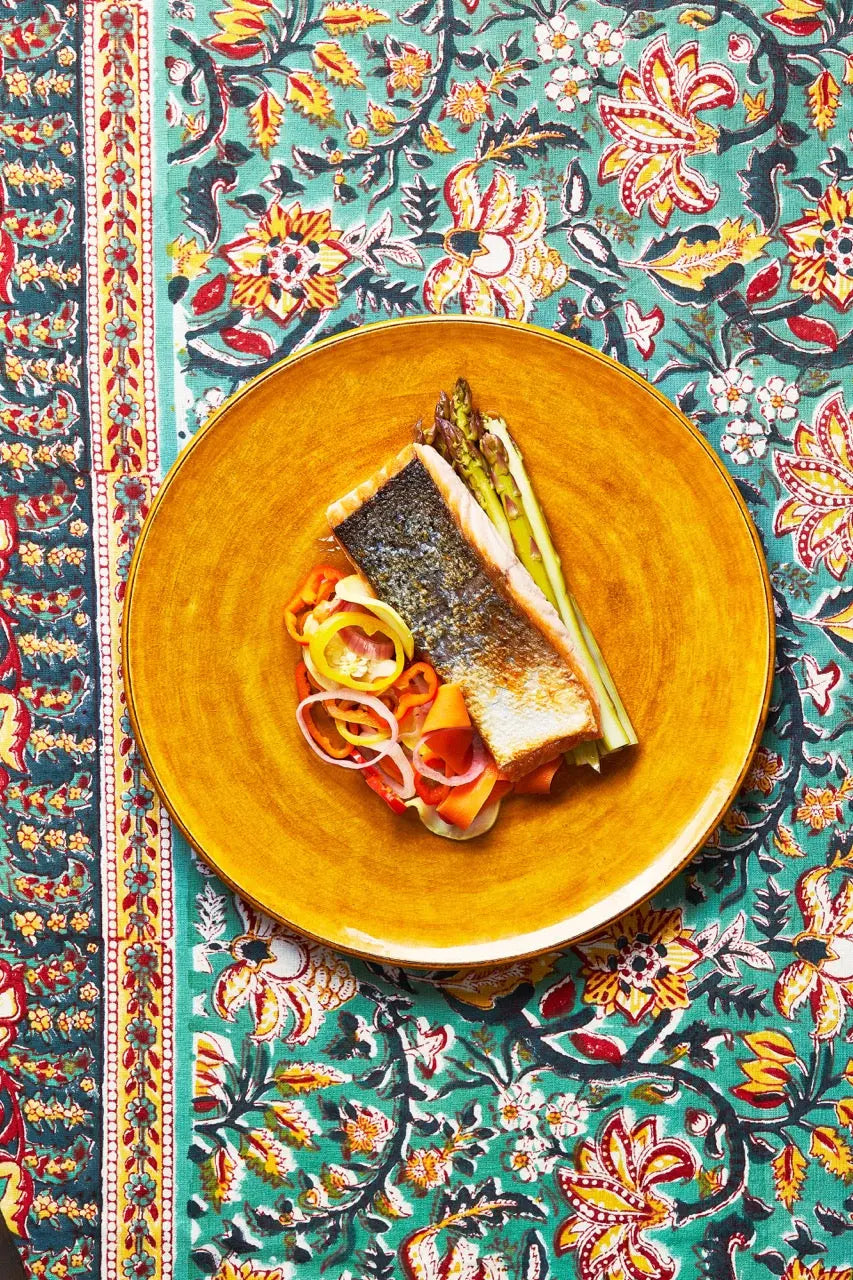Transcontinental Hospitality: The Well-Traveled Roots of Escabeche

Perhaps it goes without saying that the simplest of heritage dishes were born from resourcefulness and absolute necessity. Such is certainly the case with escabeche, a Spanish mainstay with Moorish roots which, in the traditional sense, refers to fish fried in olive oil and bathed in a tart vinegar marinade abundant with onions.
Though its roots date back to the Sasanian Empire of Persia, where it was known as sikbaj (“vinegar stew”), escabeche (iskbech in Arabic) was introduced to medieval Spain by the Moors, who ruled most of the Iberian Peninsula for 800 years. Preserving prepared fish with vinegar, they knew, would best ensure its survival without refrigeration. While early Arab versions of escabeche included date syrup as a cloying accoutrement, 13th-century Moorish recipes call for saffron and celery leaf in the vinegar marinade, which would be left to virtually pickle the fried fish of choice.

Spanish Catholics, naturally, took a particular liking to escabeche (initially rendered in Castilian as escabeje) because, being meat-free, it could be consumed during Lent; it made its first appearance in a Spanish cookbook in 1324. Indeed, escabeche was so essential to medieval Spanish banquets that it became known as “the father of hospitality.” Aromatics such as paprika, bay leaves, garlic, and peppercorn were added to the marinade, and are today considered the most authentic. After the Reconquista, the idea of vinegar-preserved fish, and later vegetables, spread via Spanish colonialism, as far as Guam and the Philippines. In coastal Peru and Ecuador, for example, where wine vinegar was scarce, fish was instead cured in citrus juices, producing an escabeche derivative know as ceviche.

Laroot’s Flamenco Escabeche harnesses the gut-healthy probiotics of pickling with its salmon-based version of the transcontinental classic. Marinated in champagne vinegar, olive oil, and salt prior to cooking, our locally minded escabeche provides satiating protein, heart-healthy omega-3s, and antioxidant polyphenols, while a kaleidoscope of local vegetables including asparagus, gold-bar squash, and baby carrots provides fiber and health-enhancing carotenoids. The epoch of grand banquets may be over, but our Flamenco Escabeche, with its judicious balance of Ayurvedic and TCM flavors, is a testament to the health-hospitable properties of a wholesome dish with an unending appeal across hemispheres.
